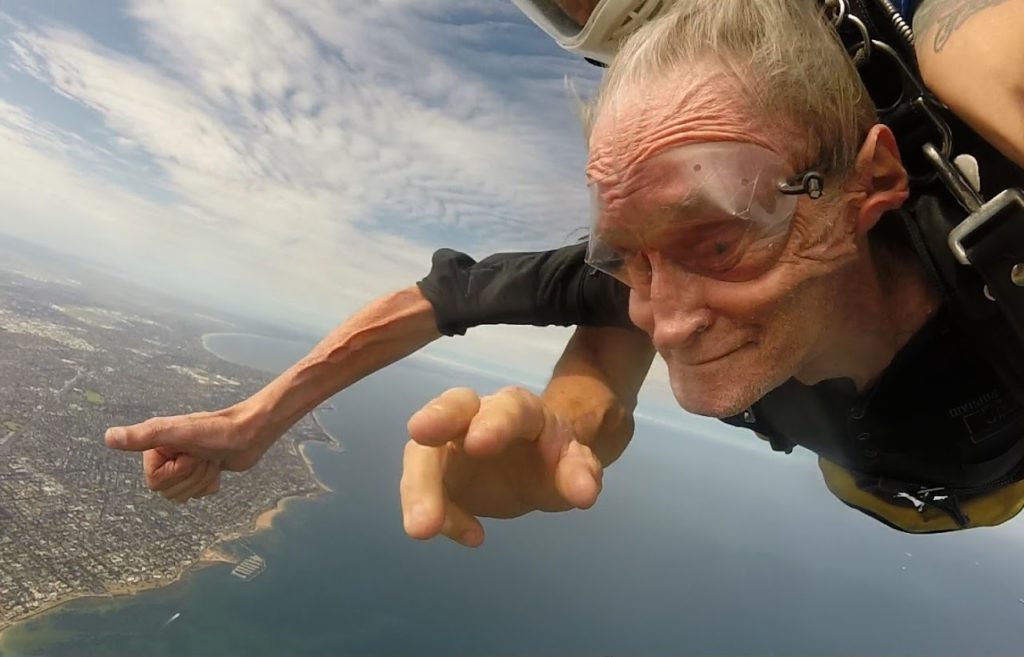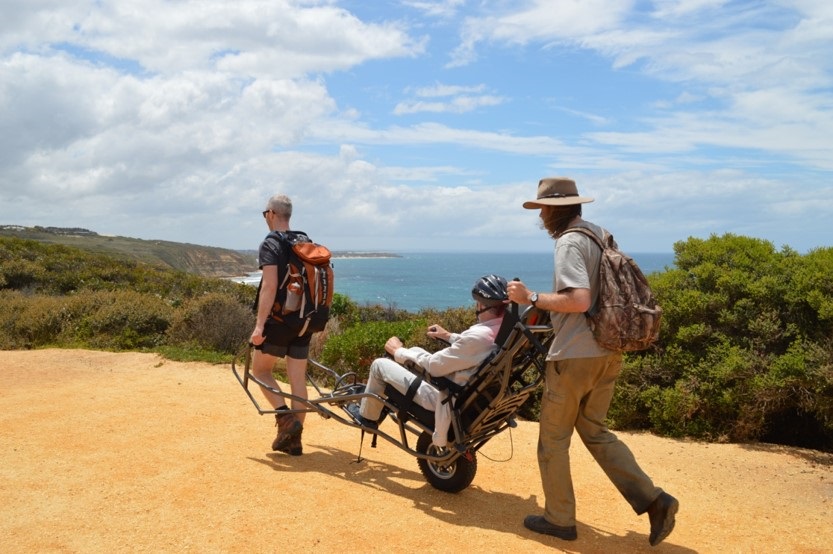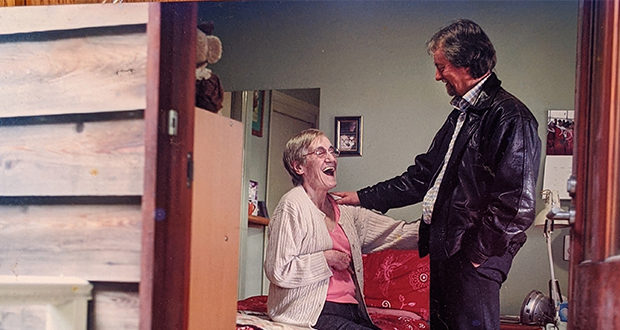When Bryan Lipmann founded Wintringham, he wanted it to be a place where he could envisage himself growing old. A place where if he wanted to, he could enjoy a drink, have a smoke, visit the local pub or leave to go jump out of an aeroplane.
This was the vision that Bryan carried with him when he established the first aged care homeless service in Australia.
Wintringham operates on trust, personal choice and autonomy. Residents can do as they like, as long as they do not interfere with the freedoms of others. According to Bryan, no aspiration is too large or too small.
“There was an old fellow who was in our aged care and he wanted to jump out of an aeroplane, so we facilitated that,”
“He did have a family and we had to convince all of them that they knew the risks, that he might die, and he wanted to do it.
“So they had to get all these workers together to catch him, but they did it and they got these wonderful photos of him soaring through the air, strapped to a guy, with this grin on his face and the wind blowing his cheeks back to his ears.”
Bryan has employed around 93 workers to drive the company's unique recreation program. Seven days a week, the staff will sit with clients, read to them, take them out for a coffee or ask them what it is they want to do with the rest of their lives.

“I think one of my great advantages I had when I set up Wintringham was, I knew nothing about aged care,” he said.
After spending 14 years in the bush as a farm labourer in regional Victoria, Bryan moved back to the city and retrained as a social worker.
“As I like to say, I'm probably the first slaughter man in history to become a social worker.”
When Bryan returned to Melbourne 1983, he was appalled to find the state of the city's homeless services after taking up a job at one of the country's largest night shelters. Back then, Gordon House was a disheveled, 10 story building which housed over 300 of the CBD’s most disadvantaged men and women.
“It was a hellhole,” said Bryan.
“I show photos of my staff when they start working with me to try and explain what it was like, but the photos don't smell.”
Many of Bryan’s clients were elderly and frail, which made them vulnerable to crime and abuse. They also had complex health needs, and many died as a result of the living conditions. After the mainstream aged care providers refused to take any of his clients in, he quit his job and established Wintringham in 1989.
"Access to aged care was pretty well dependent on money, and if you were able to buy yourself into aged care, you got good services.
“It hasn't changed at all really.
“And as a result, Wintringham keeps growing.”
For the first two years, Bryan worked as the company's sole employee. Decades later, his six facilities operate at almost full capacity year-round, providing 1000 affordable housing units and employing over 900 staff. Most recently, the company opened up its second specialist dementia care unit.
The clients of Wintringham come from all walks of life. On the company website, the ‘wall of legends’ details the stories of a past war veteran, a marine researcher, a former pole dancer and a rodeo cowboy.
Many of these men and women had lifelong careers, families and loved ones, and had fallen through the cracks due to disability, illness or structural disadvantage.

Homelessness in Australia is growing, and most economists agree that the government has failed to recognise the impact of the housing affordability crisis.
One in six people experiencing homelessness are aged 65 or over, according to the latest census. The fastest growing cohort of this group are older women.
“Increasingly, what we're seeing now is ordinary mums and dads who are entering the homeless world or at great risk of becoming homeless because of poverty,” said Bryan.
“They played the local footy team, they raised kids, they work in low paid jobs, they lived in the city.”
“Now it's too expensive for them to maintain the rent.”
Since opening over 30 years ago, Wintringham has become internationally recognised for its services. In 2011, it was awarded the UN Habitat Scroll of Honour, the first time an Australian organisation had taken home the prize.
A minister once asked Bryan how he measured his client's success. He replied that it was the amount of complaints he received from people.
"There's consequences for complaining for homeless, powerless people.
"So if you empower person so much, that they can make decisions and then if necessary, complain, you're really getting somewhere.
"But when staff sit down with one of our clients who may be illiterate, and record his complaint against them, I mean, how good is that?"
Do you have an idea for a story?Email [email protected]
 Aged Care Insite Australia's number one aged care news source
Aged Care Insite Australia's number one aged care news source


Bryan you are a legend!
This sounds amazing! I resigned my registration this year, because of dissulationment with the aged area system. I’ve worked in Aged care for 12 years, and, to my mind, the system has totally collapsed. I would be privileged to recommence work with this model
Very admirable was his dream but I have to correct how aged care was in 1989. ALL residents at that time were fully supported by the federal government and the only cost was 85% of the pension. The system has changed but those same protections for those without money are still very much in place and available.
You mention that many homeless are over 65, they can get an ACAT and be accepted into fully subsidised care….if they want. There are people to help, plenty.
Anton, many people over 65 don’t want to live in subsidised care. It’s also very difficult to get an Acas ax done if you don’t have a gp because you don’t trust services.
I agree with this model…so many aged care places fail to see of hear the person they have to care for. Wishing him ongoing success.
An honour to work with such a wonderful committed company … Residents are the prime focus a true aged care focus group .. Wintringham really do support the staff to ensure residents have the best possible care. Good on ya Bryan , your dream, your vision still keeps on via your wonderful committed staff